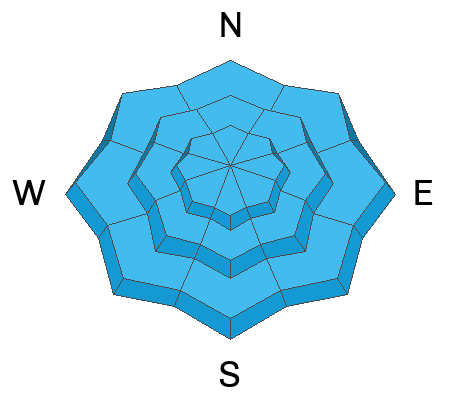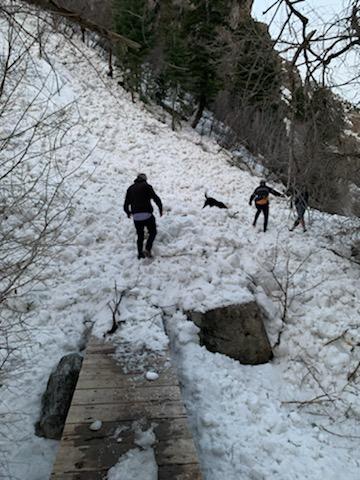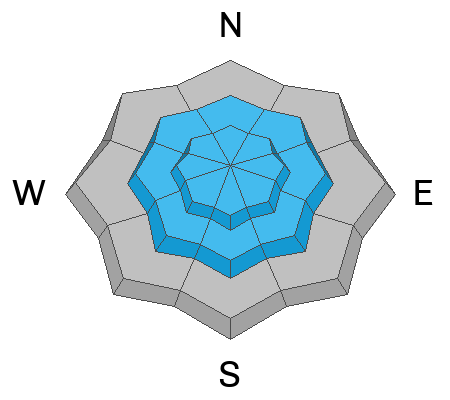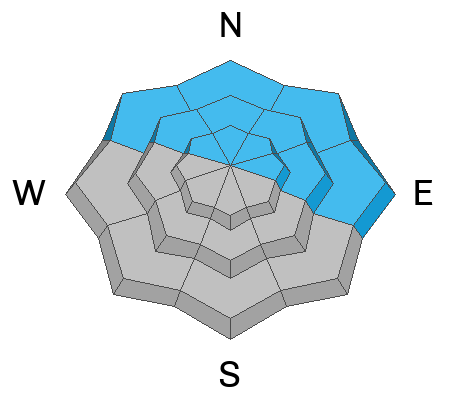Forecast for the Provo Area Mountains

Issued by Drew Hardesty on
Thursday morning, April 13, 2023
Thursday morning, April 13, 2023
Areas of CONSIDERABLE danger still exist for wet avalanches on many aspects and elevations. Today's cold front will only mask any wet unconsolidated snow below. I will admit to a great deal of Uncertainty with today's forecast, but I would continue to avoid steep terrain until we see a few days with a proper refreeze.
Cornices and roof-alanches present a real danger today. Glide avalanches remain very likely in steep terrain with glide cracks.
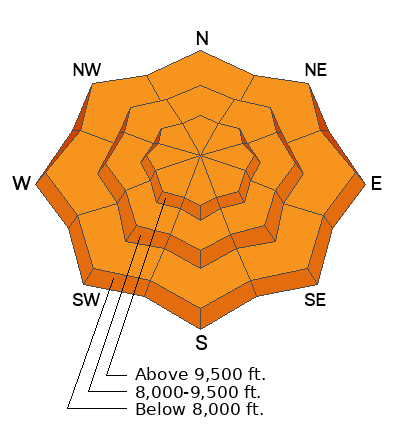
Low
Moderate
Considerable
High
Extreme
Learn how to read the forecast here



